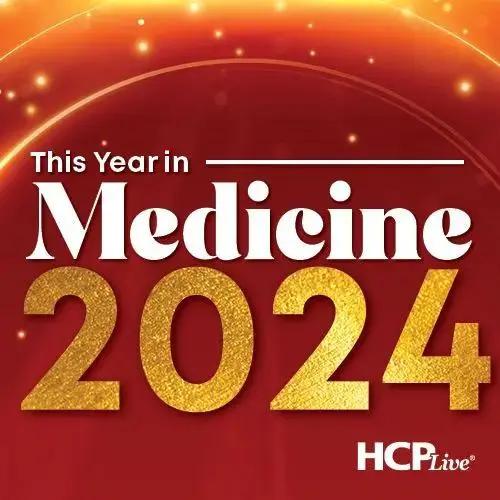Milad Zandi, PhD
Image credits: World Society for Virology

The Africa Centers for Disease Control and Prevention (Africa CDC) has declared the ongoing mpox outbreak a Public Health Emergency of Continental Security (PHECS), its first such declaration since 2017.1 Concurrently, the World Health Organization has labeled the mpox outbreaks in Congo and other African nations as a global emergency.2 Currently, more than a dozen African countries, including previously unaffected ones like Burundi, Kenya, Rwanda, and Uganda, have reported mpox cases. In 2024, these countries have confirmed 2,863 cases and 517 deaths, with the majority in the Democratic Republic of the Congo. Suspected cases across the continent have exceeded 17,000, a sharp rise from 7,146 cases in 2022 and 14,957 cases in 2023. This situation highlights significant issues in surveillance, testing, and contact tracing.1
In a conversation with Contagion, Milad Zandi, PhD, assistant professor at Lorestan University of Medical Sciences, specializing in virology discusses the disease’s rapid spread and severity. Zandi participates in scientific committees and editorial boards for various international journals. In the context of the mpox outbreak, Zandi’s expertise and work contribute to understanding and managing viral threats like mpox.
Key Takeaways
- The current mpox outbreak is more severe and widespread than previous ones, with increased human-to-human transmission and higher hospitalization and mortality rates.
- The Africa CDC’s PHECS declaration highlights the need for a coordinated, continent-wide response to manage the outbreak and prevent further spread.
- Differences between mpox Clade I (more severe and transmissible) and Clade II (milder and less transmissible) require tailored public health strategies to effectively address each clade’s impact.
Contagion: What are the key factors that led to the Africa CDC’s declaration of a PHECS for the mpox outbreak?
Zandi “The African CDC’s declaration of a PHECS for the mpox outbreak was driven by several critical factors, including the rapid escalation in the number of cases across multiple African countries and the significant potential for further spread both within the continent and globally. The outbreak exhibited characteristics that were unusual compared to previous occurrences, such as a higher incidence of human-to-human transmission and the involvement of non-endemic regions. This situation posed a serious threat to public health systems that were already stretched thin due to the ongoing COVID-19 pandemic. Moreover, the re-emergence of mpox in areas where it had not been seen for decades, combined with the increased mobility of populations and international travel, heightened the risk of a widespread epidemic. The Africa CDC recognized the need for a coordinated, continent-wide response to prevent further spread, protect public health, and mitigate the economic and social impacts, leading to the PHECS declaration.”
Contagion: How does the current outbreak of mpox compare to previous outbreaks in terms of severity, spread, and impact?
Zandi “The current mpox outbreak is notably more severe and widespread compared to previous outbreaks. Historically, mpox outbreaks were generally confined to rural areas in Central and West Africa, where the virus was primarily transmitted from animals to humans with limited human-to-human transmission. These outbreaks were typically localized and contained quickly, with lower overall case numbers and mortality rates. In contrast, the current outbreak has seen a significant increase in human-to-human transmission, including in urban areas and among populations that had previously been considered at lower risk. This has led to a more extensive spread of the virus, including into non-endemic regions and across international borders. The severity of the current outbreak is also higher, with more cases developing severe symptoms and complications, leading to increased hospitalization and mortality rates. The broader societal and economic impacts are also more pronounced, as the outbreak coincides with other public health challenges, straining healthcare systems and disrupting economic activities.”
Contagion: Can you explain the differences between Clade I and Clade II of mpox, and how these differences influence the outbreak and response strategies?
Zandi “Clade I and clade II of the mpox virus differ in several important ways that influence the nature of the outbreak and the strategies used to respond to it. Clade I, also known as the Congo Basin clade, is associated with more severe disease outcomes, including higher case fatality rates and greater transmissibility among humans. This clade tends to cause more extensive outbreaks and requires more aggressive public health interventions, including widespread vaccination campaigns, robust contact tracing, and stricter isolation measures to prevent the spread. On the other hand, clade II, or the West African clade, typically results in milder disease with lower case fatality rates and a reduced rate of human-to-human transmission. Although clade II can still cause significant outbreaks, the public health response can be more targeted and measured, focusing on surveillance, early detection, and localized containment efforts. Understanding these differences is crucial for public health authorities to allocate resources effectively and implement appropriate strategies tailored to the specific clade involved in an outbreak, ensuring that the response is both effective and efficient.”3
Stay tuned for a more in-depth discussion and coverage from Dr. Zandi and his co-author, Zahra Heydarifard, PhD on their recent study, “Innate Immune Response to MPOX Infection: Mechanisms and Immune Escape.”
References
-
Africa CDC Declares Mpox A Public Health Emergency of Continental Security, Mobilizing Resources Across the Continent. Africa CDC. August 13, 2024. August 16, 2024. https://africacdc.org/news-item/africa-cdc-declares-mpox-a-public-health-emergency-of-continental-security-mobilizing-resources-across-the-continent
-
Cheng M. WHO declares mpox outbreaks in Africa a global health emergency as a new form of the virus spreads. AP News. August 14, 2024. Accessed August 16, 2024. https://apnews.com/article/who-mpox-africa-health-emergency-cc9bdf31b49d06bec5efd44fb55d5e42
-
Shafaati M, Zandi M. State-of-the-art on monkeypox virus: an emerging zoonotic disease. Infection. 2022 Dec;50(6):1425-30








